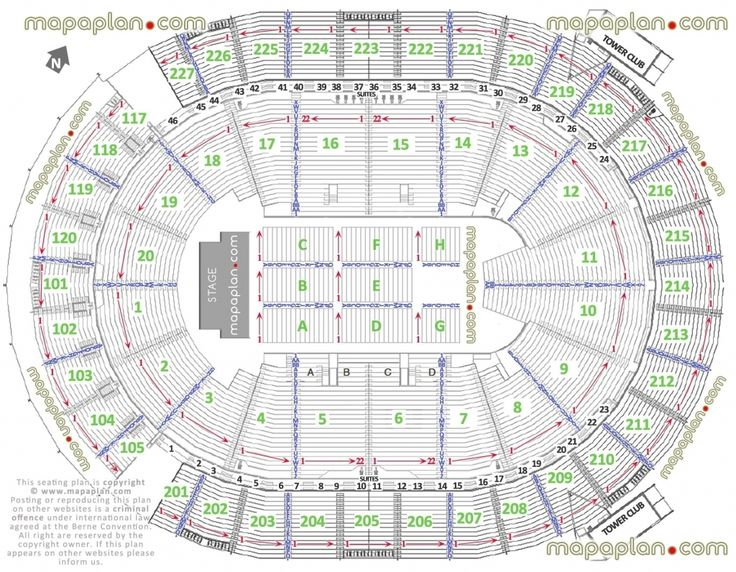Interactive Wells Fargo Center Seating Chart With Seat Numbers – Planning an event involves a lot of variables, but developing seats charts is a essential element that can either make or break the experience of attendees. A well-designed seating arrangement can increase ticket sales and ensure that attendees have a pleasant experience. In this articlewe’ll go over center seating charts, their benefits, ways to create them, and best practices for using them.
What is a Center Seating Chart?
A central seating diagram is visual representation of an occasion’s seating strategy that is centered around the center section of the venue. The chart typically includes seat assignments and numbers, as well as indications for the different sections, as well as any other details that are required. The objective of a center seating chart can be described as providing the user with a simple and clear layout of the space to assist users locate their seats quickly and efficiently.
Benefits of Using a Center Seating Chart
- Increases ticket sales by creating a clear, concise map in the area, an central seating list makes easier for patrons to locate and buy seats that they like, which increases ticket sales.
- Enhances the overall experience of attendees: The right seating plan for your event can improve the overall experience of those attending, making them more likely to attend the next event.
- Reduces frustration and confusion: A well-organized and organized seating plan can prevent discontent and confusion among guests, which could cause negative reviews and diminished attendance in the coming years.
- Facilitates easy management of events This can assist event organizers quickly and easily find any issues in seating arrangements. This will allow them to make the required adjustments.
How to Create a Center Seating Chart
A. Choose Your Seating Chart Tool
Select a tool for seating charts to meet your needs and budget. There are several options to choose from for you to choose from free online tools to more advanced software.
B. Select Your Event Type and Venue Layout
Consider the kind of event you’re hosting , as well as the structure of your venue while making your seating plan. This will assist you in determining the amount and kind of seating areas you’ll need to include.
C. Add Your Seating Sections and Labels
Utilizing your preferred seating chart tool, mark the sections and labellings for Your seating strategy. Common sections include the front row, the center section, balcony, and VIP seating. It is essential to label every section clearly and consistently all over the diagram.
D. Assign Seats and Seat Numbers
Designate seats and seat numbers to each part of the venue. It is essential to ensure that each seat is designated clearly and logically. Also, ensure that there’s no duplicate seats numbers.
E. Add Additional Details and Customizations
In accordance with the size of the event, you might require adding additional details to your seating chart, like accessible seating or reserved seating. You can also customize your chart with designs, colors, for example, as branding components.
Best Practices for Using a Center Seating Chart
- Make it easy The ability to read and comprehend a clear seating plan is essential for increasing ticket sales and improving the user experience.
- Test your chart before the event: Make sure to test your seating chart prior to the event to ensure that everything is operating as expected.
- Communication of changes clearly: If you need to modify the seating plan after it is published, be sure to communicate these changes in a clear manner to the attendees.
- Clear instructions: Give clear directions for finding the seats and getting them, especially for venues with complex layouts.
- Take into consideration accessibility: Make sure to include accessible seating options on your seating charts and make sure your seating charts are marked and easy to find.
Conclusion
A well-designed and well-organized center seating chart is a fundamental element of any successful event. By following these good practices and utilizing the tips and tools mentioned in this piece, you can create a seating plan that maximizes ticket sales. boosts attendance, and creates a pleasant and pleasant experience for everyone.





